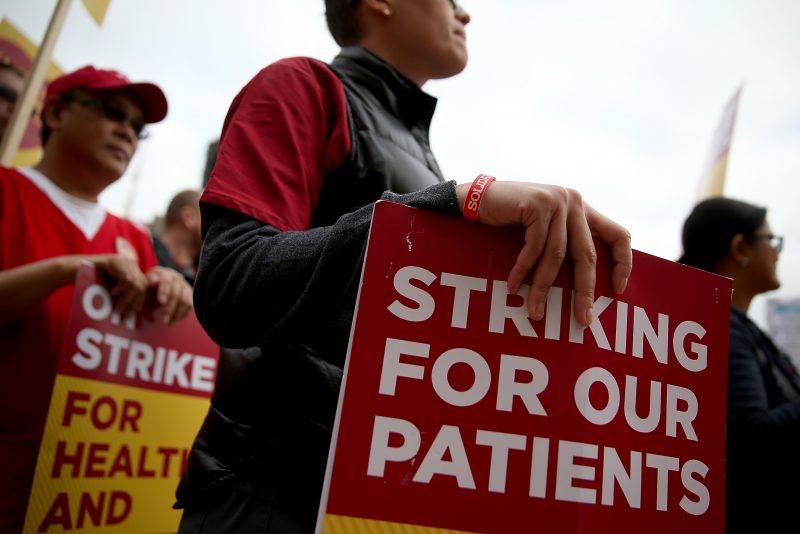
OAN’s Stephanie Stahl
12:20 PM – Wednesday, October 4, 2023
More than 75,000 Kaiser Permanente employees just launched the largest health care strike that the United States has ever seen, according to the Coalition of Kaiser Permanente Unions.
Wednesday morning, Kaiser workers began walking out of hospitals and medical offices after the company failed to address disputes over compensation, benefits, and staffing shortages.
The strike is expected to continue until Saturday morning.
The coalition of eight unions represents about 40% of Kaiser Permanente’s total workforce.
Striking employees are located in California, Colorado, Washington, Virginia, Oregon, and Washington, DC.
Workers on the picket lines are fighting for improved compensation, benefits, and safer work environments. Their list of demands also includes enhancing staffing levels, arguing that the current shortages are compromising patient care and pushing many employees to their limits.
Caroline Lucas, executive director of the Coalition of Kaiser Permanente Unions, reported that the shortage of staff has resulted in hazardous working conditions and a rapid decline in the quality of patient care.
“We continue to have front-line health care workers who are burnt out and stretched to the max and leaving the industry,” Lucas said in a statement.
“We have folks getting injured on the job because they’re trying to do too much and see too many people and work too quickly. It’s not a sustainable situation,” she continued.
Kaiser Permanente addressed the significant stress experienced by healthcare workers in a statement, reporting that over 5 million healthcare professionals have left their positions and that burnout has reached an all-time high.
Kaiser affirmed its commitment to “achieving a fair and equitable agreement.”
However, the union coalition claims that management failed to adequately address the concerns of workers that would have prevented the historic strike.
In a statement on Tuesday, the coalition described the 3-day strike as a protest against what they perceive as “bad faith bargaining” on the part of Kaiser executives.
During the second quarter, Kaiser reported a profit of $2 billion, a stark contrast to the $1.2 billion loss reported for the same period in the previous year. The nonprofit organization generated $25 billion in revenue in the second quarter.
Employees on the picket lines include emergency department technicians, radiology technicians, X-ray technicians, respiratory therapists, medical assistants, pharmacists, and numerous other roles.
Kaiser caters to nearly 13 million patients and runs 39 hospitals, along with over 600 medical offices across eight states and the District of Columbia.
Kaiser has stated that it has contingency measures in place to ensure patients continue to receive care during the strike.
Stay informed! Receive breaking news blasts directly to your inbox for free. Subscribe here. https://www.oann.com/alerts

